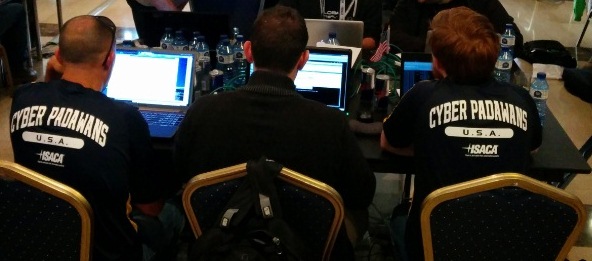Churnalism just got smarter – thanks to the security industry
The Internet of things can fine tune many routine processes. So isn’t it time we automated journalism? Don’t laugh, it’s already taking place, with secret trials taking place on a firewall near you.
Yes, OK, the earliest attempts at robotic churnalism were slightly risible. There are some humans whose consistent reproduction of shibboleths, unsubstantiated rumours and the blatantly obvious can never be emulated.
However, some of the more routine aspects of news writing, such as financial results stories, have been colonized by machines. They call this sinister invention Automated Insights. As far as I can tell this has been a success – my eye still slides off the screen after a couple of sentences, so I’m still none the wider if man or machine is ahead in this particular game.
However, there is one area where the IT security industry has unwittingly created a perfect model of automated journalism. They just don’t realize it. Let’s not tell them about it either because, once they realize they are sitting on the foundation of a beastly disruptive technology, we’ll all be out of a job.
The IT security sector, in my experience, seems to be the most hostile towards journalists, so I’m not sure whether it’s by accident or design that they discovered the key to automated reporting. It’s more important that we monitor their activities, in case they use their invention for evil purposes.
Consider the actions of the NetScouts, the intrusion detectors and other security monitors. You might think they are brilliant at preventing aggressive hackers from invading private databases and stealing information. I however, consider the developers, mathematicians and behavioural scientists at companies like Sophos, Bluecoat and Metaflows as fiends in human form.
When you examine the action of an intrusion detection system (IDS), it is obvious which humans provided the role model. At the risk of over-simplification, these IDSs could possibly be described as anomaly finding systems. They contain software that can look at the patterns on a network, and identify something that is unusual. (What we in journalism might call ‘a story’). A story might look like a user, perhaps, that is showing a disproportionate amount of interest in one particular division of the IT infrastructure. Having gained access to the system, one would assume that this is a bona fide user but if they constantly try to access financial information, that could be described as suspicious.
The intrusion prevention software developed by Metaflows, is a perfect simulation of a reporter. It spots an interesting story, and reports it back to ‘the news desk’.
The news desk in an intrusion detection system is another simulated journalist – this time it’s the Editor’s job that has been cloned. On the security network news desk, another classic journalistic job has been recreated in electronic form. Intrusion prevent systems will listen to incoming requests, weigh them up and decide, based on their experiences and knowledge, whether to give them house room. In journalism, this role is classically known as a ‘copy taster’, these being people who have developed an instinct for stories. They can judge with a high degree of accuracy whether something sounds wrong or right and whether it deserves further investigation or whether it should be spiked.
Meanwhile, the importance of the intrusion story has to be calculated, and all the day’s intrusion news categories are prioritized. These hourly bulletins are the published on screen for the public. The viewer, typically a networking security professional, will catch the hourly news and act accordingly.
Many an IT security expert has button-holed me in the past and complained about the activities of journalism. But meanwhile, the entire security industry seems to be re-creating an automated form of journalism in their own internal systems. Maybe they secretly admire us, after all. Imitation is the sincerest form of flattery.
I don’t think that’s the explanation. It’s far more sinister. I think they’re trying to create an automated form of journalism that will put us all out of a job!
Maybe, it retaliation, we journalists should all turn our hands to security. Every data centre should have a hack on the outside, checking every packet before it enters the building, looking for stories. We couldn’t do a worse job than some of the security companies!









